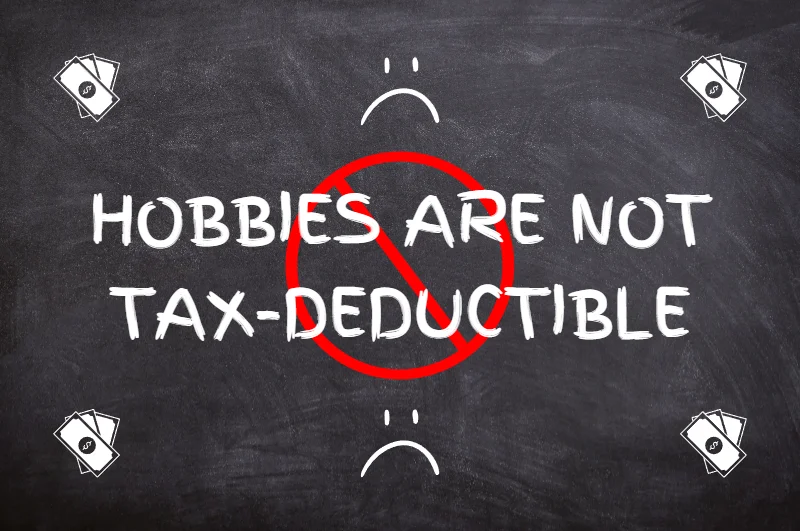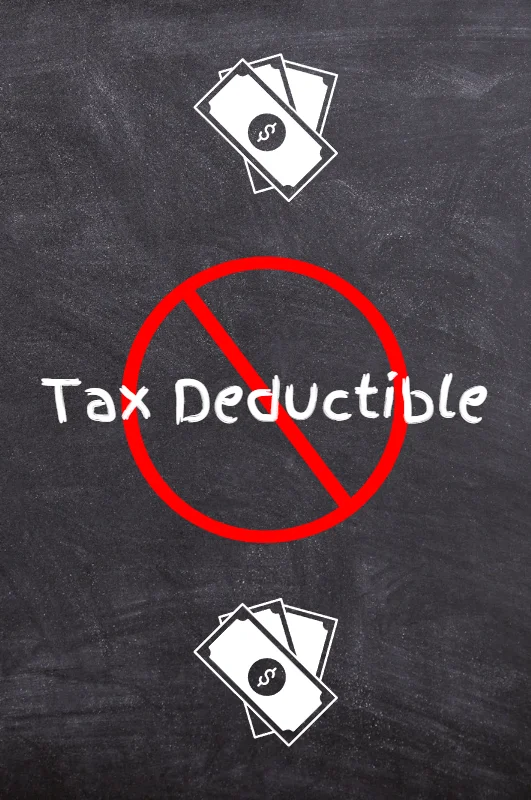So, you’re a fan of art. You took the time to acquire quite a collection (or perhaps you intend to). It’s natural to wonder if you could count such a purchase on your taxes for a tax deduction. You might especially wonder about this question during tax season, like it is at time of writing. So, let’s discuss whether or not your art purchase is, in fact, tax-deductible.
Important Disclaimers

Firstly, I must first say that I’m no expert in this subject from either a financial nor a legal standpoint. If you want clear information for you and your situation, then you must consult a CPA or an IRS agent to answer your questions. I am neither. This is not legal nor financial advice.
Also, I’m discussing the specifics of tax-deductible art in the USA. If you live in a different country, this information will not help you out. You must research your own local laws. I live in the US. Thus, I report the information which is relevant to me and my customers.
Keep in mind that the IRS rules are in flux. They change and redefine rules every year. The information presented here might be out-of-date. Please don’t rely upon this article for your own personal or business taxes.
Quick Answer
If you’re looking for a quick answer to your question about your art purchase being tax-deductible, then the answer is ‘probably not.’ There are a few circumstances where the answer is ‘yes’ and we will attempt to cover them. However, it’s likely that you will not meet those requirements. Keep that in mind as you read.

IRS Categories for People and Art
The Internal Revenue Service (IRS) categorizes people interested in art into 4 categories. These are artists, art dealers, investors, and collectors. Let’s break these down a bit.

Artists
This should be the most straightforward category. It includes all those people out there who create art. Sadly, you will not find that the tax rules work in your favor as an artist. In fact, tax rules and laws don’t favor artists at all.

Art Dealers
Perhaps you’ve heard of people like this. They engage in the business of buying and selling art. The IRS will determine membership in this category on an individual basis. To qualify, you must show your interest, efforts, and intent with the purchase or sale involves more than simple hobby-level interest.

Art Investors
This category includes people who buy and sell art for investment purposes. You must sell or be willing to sell a piece of art to make a profit. If you want information about investing in photography as art, then check out this article. To qualify for this category, the IRS will look at why you purchased a piece of art, how long you hold it for, what you use the proceeds for, and the rest of your investment portfolio/business interests.
The IRS can and will deny you membership in this category if you cannot prove that you ever sold a piece from your collection. They have in the past.
Perhaps you noticed that I keep mentioning the idea of hobby above. The reason is that the IRS will not allow any tax deductions for the expenses related to personal enjoyment and hobbies. If they think you might be a hobbyist, then you will receive no tax breaks at all.

How do they determine your category? They have a long list of questions which they will ask you. Always answer truthfully. However, if you cannot truthfully answer their questions a certain way, then you will find yourself deemed a hobbyist. Appealing their decision will be difficult at best.
Buying Art as a Tax-Deductible Business Expense
Perhaps you noted that 3 out of the 4 categories above deal with art as some sort of business expense or arrangement. The idea is to make money with the art. This is where you might benefit from some tax laws. Every situation is different, so don’t count on my generalities covering your situation.
What Counts as a Tax-Deductible Business Expense

Art dealers purchase art with the idea of selling it to make a profit. As soon as a buyer comes along, they sell the art. In this instance, purchasing art is considered inventory acquisition. It’s much the same as if you were selling pencils. It’s simply inventory to you if you’re in the art dealer category. The normal tax laws regarding deductions due to inventory acquisition should apply as long as we are dealing with ordinary, necessary, and reasonable expenses. According to 238 AA of the CGI, a business may reduce its taxable profits by deducting the cost of buying the art. However, the artist must still be alive to do so.
Another small consideration is if you decide to give a gift of art as a business. There is a small deduction of $25 per person per year which you may claim. The technicalities of how to claim this particular tax deduction can get a bit thick. Check here for IRS rules on business gifts.
What Doesn’t Count as a Tax-Deductible Expense

Perhaps you’re not in the business of art. However, you need art for office decorations. This will not count as a tax-deductible expense. It is not inventory if you are not an artist or art dealer. Therefore, no tax breaks for you. Yes, people have tried and failed at using this particular argument.
Another angle you might try is depreciation. You receive a tax deduction for the normal wear and tear which an item experiences during the course of doing business. In this, you are also out of luck. Artwork such as paintings and sculptures do not wear out. They are not consumables either. This means they do not qualify for depreciation deductions on your tax filings. If we were talking about something like a desk, clock, rug, etc. (even antiques), then we could count on depreciation deductions. Once again, others have both tried and failed using this particular argument with the IRS.
Tax Deductions for Charitable Donations
If you are an art collector or hobbyist, then you may find one option for you in tax law. If you (or your estate) make a charitable donation of art, then you may qualify for a charitable donation deduction. Keep in mind that charitable donations only come into play if you itemize your taxes. If not, then it will not avail you.

There are certain rules you must follow to qualify for this tax deduction. Some of these rules include donating to a public US-based charity, ownership for more than a year, the donation must in some way perpetuate the charity’s charter, must obtain a qualified appraisal of the art donated, can only claim the deduction within 3 years of making it, and you must truly be an art collector or an art investor as loosely defined above. This kind of deduction is not available to artists or art dealers.
Taxes You Might Incur When Buying Art

While looking into how you deduct art purchases from your taxes, you might want to know what taxes you might incur by buying art. There are several possibilities.
The first tax you will certainly pay is sales tax. You are buying something. Unless you can set up a business to business (b2b) transaction, complete with tax id numbers, then you will pay sales tax as the final consumer. You may pay a state, county, and local municipality tax depending upon where you live or make your purchase. If your state doesn’t do sales tax, then this is the only way you will not pay this tax.
The next tax you might run into is capital gains tax. If you are an art investor, then you buy and sell art with the purpose of increasing your personal fortune just like stocks and bonds. If you sell a piece of investment art for a net gain, then you may need to pay a capital gains tax (a form of income tax).
Another tax you might run into is estate tax. If you inherit a sizable enough estate, then the government wants a piece of it. This may include personal property. Many people use trusts to avoid some of these taxes. If you wish to set up a trust, then seek out professional help.
Conclusion
So, once again, the answer to whether or not buying art is tax-deductible is ‘probably not for you.’ You must meet certain narrow standards to even try and make your art tax-deductible as the IRS will not lightly let you off of paying taxes. Basically, only those who engage in the business of buying and selling art quality for tax-deductible art purchases. Remember, if you have any questions, please contact a CPA or an IRS agent to help you.




